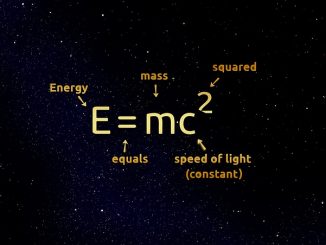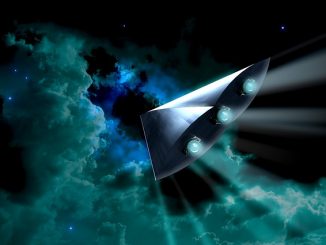
On February 6, SpaceX’s Falcon Heavy successfully launched its rather unique payload into space which included Elon Musk’s personal Tesla and a spacesuit-clad mannequin, named Starman. But Starman wasn’t Musk’s only cool addition to the midnight-cherry Roadster which is now zipping away from Earth at more than 12 kilometers per second.
Stashed inside the Mars-bound sports car was a tiny – not much larger than a coin – data storage device that can theoretically hold up to 360 terabytes of data, or about 7,000 Blu-ray disks. But even more impressive than the data capacity is that the one-inch diameter quartz crystal disk called an Arch (pronounced: ‘Ark’), is also capable of securely storing vast amounts of data in the harsh environment of space for millions, if not billions of years.
Another interesting piece of information is that according to Arch Mission Foundation (AMF), the California-based nonprofit behind the technology, the library stored in Musk’s Roadster – Arch 1.2 – was loaded with the text of Isaac Asimov’s influential “Foundation” sci-fi book trilogy: Foundation (1951), Foundation and Empire (1952), and Second Foundation (1953). Set in a world where humanity is a space-faring species, the legendary trilogy, which SpaceX says was “the original inspiration for the Arch mission,” tells an epic tale, neither explicitly utopian nor dystopian, of the fall and rise of future galactic empires.
So, the Arch library floating toward Mars’ orbit with a copy of the Foundation trilogy is very much in line with the goals of the Arch’s developers, who have named this maiden disc launch the ‘Solar Library’.
“The Solar Library will orbit the Sun for billions of years,” explains co-founder Nova Spivack, noting that the Archs could “preserve and disseminate humanity’s knowledge across time and space, for the benefit of future generations”.
“Think of it as a ring of knowledge around the Sun”, Spivack continued. “This is only the first step of an epic human project to curate, encode, and distribute our data across the Solar System, and beyond.”
Filled with just three megabytes of memory, Falcon Heavy’s Arch 1.2 (the first Arch library – Arch 1.1 – resides in Musk’s personal library) is the first planned Solar Library that will orbit the Sun for billions of years. Subsequent launches are planned for 2020 and 2030, with the ‘Lunar’ and ‘Mars’ Arch libraries.
The Arch Mission Foundation also believes its Archs could one day be used not only as the groundwork for an internet on Mars, but also to preserve libraries of human knowledge for interstellar travel while at the same time protect information in the event of calamity to Earth itself.
“By eventually connecting the Arch Libraries, and the Arch storage devices they contain, through a decentralized read-write data sharing network that spans the Solar System, we can begin to grow and share a collective decentralised library of everything humanity learns, on every planet in our Solar System, and even beyond, as we spread,” Spivack wrote.
Sounds…far off. But hey, did you ever expect a Tesla Roadster would be on a path towards the asteroid belt between Mars and Jupiter in 2018?
References: AMF, Sciencealert
Disclaimer: This page contains affiliate links. If you choose to make a purchase after clicking a link, we may receive a commission at no additional cost to you. Thank you for your support!




Leave a Reply